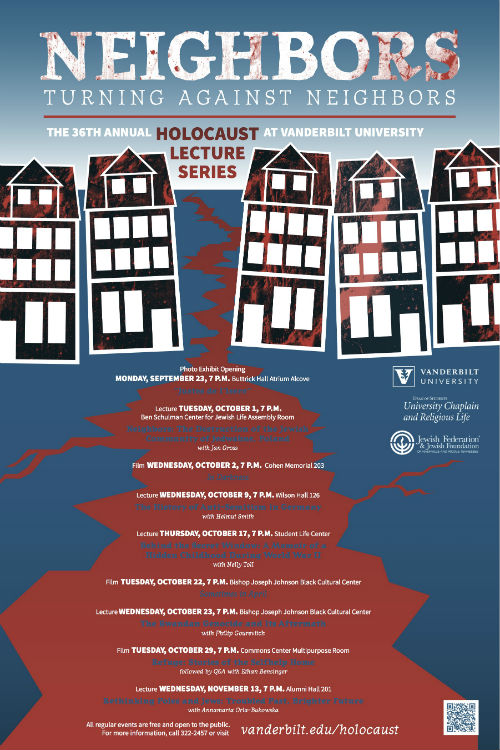Neighbors Turning Against Neighbors
This year, the thirty-sixth annual Vanderbilt University Holocaust Lecture Series will examine the enduring saga of genocide. While we may educate ourselves in humanity-s acts of extreme violence against its own, we must also ask whether we can rise above moral indignation alone and actively harbor persecuted peoples from ethnic cleansing and genocide in our own time.
Genocide, mass violence committed against a specific group of civilians with exterminationist intent, occurred long before Raphael Lemkin-a Polish Jew who found refuge in New York as the Holocaust was taking place in Europe-coined the term. And as Lemkin noted, the Jews were not the only group subject to destruction by the Third Reich and its collaborators.
Neighbor turning against neighbor. People who have known each other for years, whose children have played together, suddenly divided by rising cycles of suspicion, hate, and violence. One of the most chilling aspects of the Holocaust, and of other genocides, is the recurrence of this dismal phenomenon in virtually every culture in which genocides have taken place. In this year-s lecture series we explore how such a thing could become possible - the psychological, social, and cultural factors that turn long-standing acquaintances (and some old friends) into victim and perpetrator.
On behalf of the 2013 Vanderbilt University Holocaust Lecture Series Committee, we cordially invite you to attend all of our thought provoking programs.
Nell Koneczny, -13, Student Chair
Dr. Michael Bess, Chair
The Holocaust Lecture Series is a program if the Office of the University Chaplain and Religious Life at Vanderbilt University.

